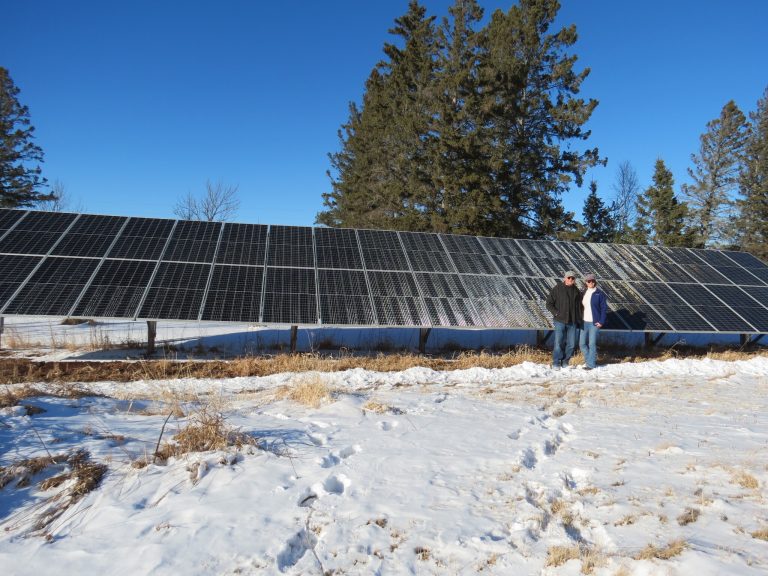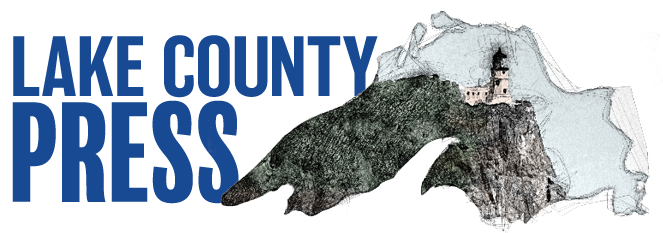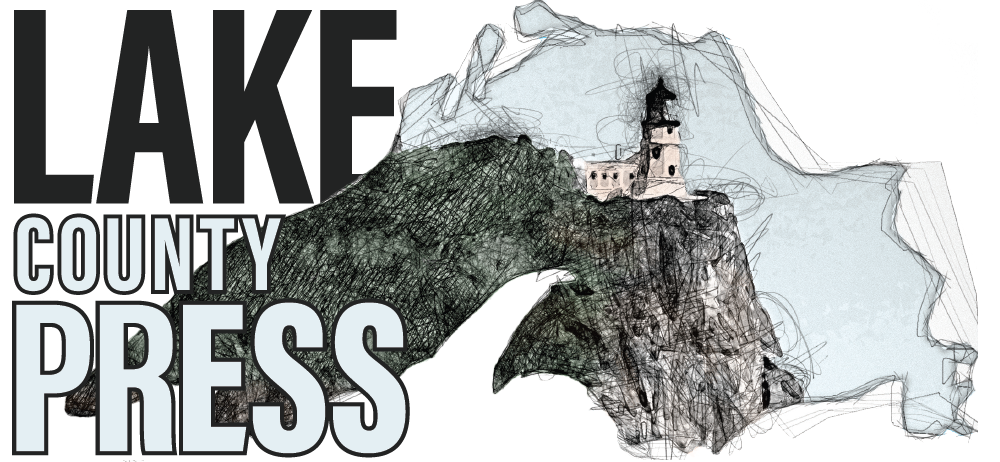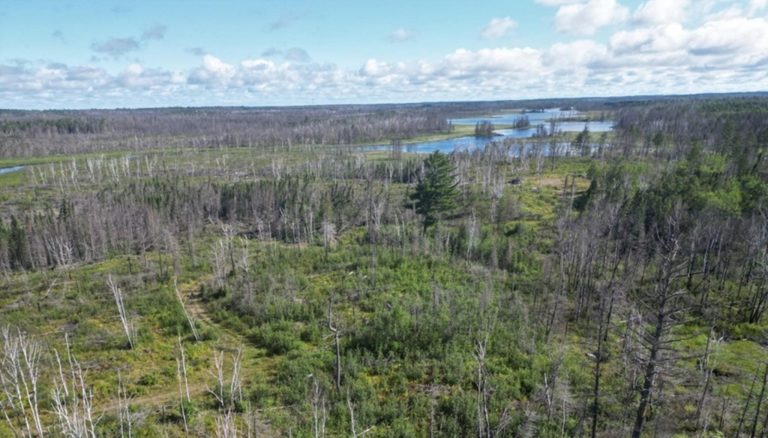Local residents share their successful transition to solar energy through community solar co- op model

by John Anderson
Solar United Neighbors of Minnesota
When Two Harbors residents Robbie and Joe Tietge decided to go solar in 2023, they turned to nonprofit Solar United Neighbors (SUN) to help navigate the process. Now, with their system running successfully for over a year, they’re encouraging others to look into SUN’s new Northeast Minnesota Solar Co-op, which is currently welcoming new members from across the Duluth and Arrowhead regions. The solar co-op is free to join, with no obligation to go solar. You can sign up here: www.solarunitedneighbors.org/nemn
“We had been thinking about installing a solar system for several years, so we talked to our neighbors who had panels,” explains Robbie Tietge. “One of them told us about SUN—they help homeowners collaborate with folks in their own community and become informed enough to feel confident going solar.”
The Tietge’s also learned about how SUN solar co-op members benefit from group buying power to earn discounts on installations. The co-op model brings together homeowners, businesses, and non-profit organizations to leverage their collective purchasing power, making solar more accessible and affordable for all participants.
“This ‘group shopping’ benefits everyone in the solar co-op,” Joe Tietge points out. “The contractors offer a more attractive price for installations. Our group chose a local installer, and they have been professional, responsive, and great to work with, even with questions a year later. As part of our contract, they also worked with our local electrical provider.”
Members also gain access to SUN’s trusted expertise throughout every step of their solar journey—from initial consultation to array installation and beyond.
“SUN has refined our processes through hundreds of installations,” notes John Anderson, program associate with SUN. “Solar United Neighbors has helped more than 300 Minnesota households, farmers, and small businesses go solar through 24 successful co-ops across the state.”
Federal Tax Incentives to Go Solar. In addition to group buying power, the Tietges also benefited from the federal solar investment tax credit in their transition to solar. The tax credit allows homeowners to claim 30% of their solar installation costs as a non-refundable income tax credit. This incentive is also available to entities that don’t pay federal income tax—such as schools, local governments, and churches—through a cash reimbursement option.
“The system has been in for over a year, and is running smoothly,” shares Robbie. “A great option with our inverters was to install an app on our phone and see the generation in real time, as well as the historical data. Many of us are retired and installed our systems because we are concerned about our carbon footprint. The app calculates tons of carbon saved as well as hot water heated, miles flown on a plane or in a car, and trees saved.”
Net Metering Benefits. Another key advantage for solar owners in Minnesota is ‘net metering’ – a process which allows homeowners to receive credit when their panels generate electricity beyond what their home can use. This power flows to the grid for neighboring households to use, and the utility company credits the solar owner for this contribution.
“Net metering is a fair and straightforward way to compensate solar owners for delivering power to the grid,” explains Anderson. “It also promotes distributed solar generation, which is crucial for developing a more sustainable and resilient power grid.”
Solar Co-op open to new members until June 30, 2025. Before joining the co-op, the Tietge’s had questions like, “How much is it going to cost? How am I going to get everything organized?” But joining the solar co-op gave them the resources, knowledge, and support they needed. The couple recommends that anyone curious about solar energy explore SUN’s co-op opportunities.
The Northeast Minnesota Solar Co-op is open to residents in Carlton, St. Louis, Lake, Cook, and Itasca counties. The initiative has gained support from local partners including the Cook County Local Energy Project, Minnesota Interfaith Power and Light, and Iron Range Partnership for Sustainability.
Residents interested in learning more can visit www.solarunitedneighbors.org/nemn for upcoming information sessions and further details.
About Solar United Neighbors. Solar United Neighbors is a nonprofit organization that works in Minnesota and nationwide to represent the needs and interests of solar owners and supporters. Solar co-ops are part of the organization’s mission to create a new energy system with rooftop solar at the cornerstone. Solar United Neighbors holds events and education programs to help people become informed solar consumers, maximize the value of their solar investment, and advocate for fair solar policies.



